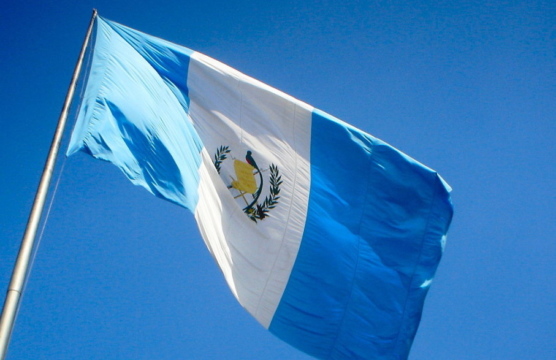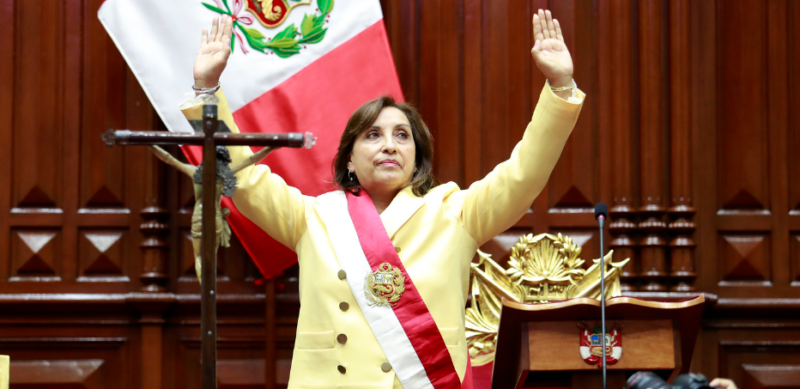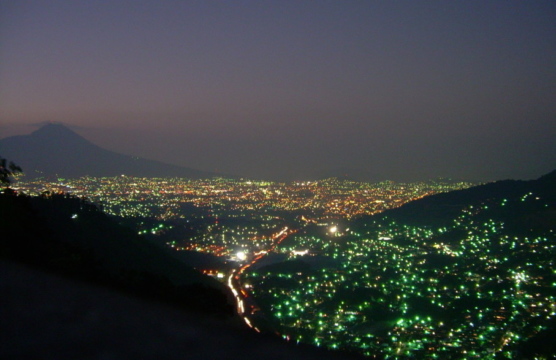
Are Countries Making Progress in Fighting Corruption?
Which countries in the region are making strides in fighting corruption, and which are falling short?
A Daily Publication of The Dialogue
Peru’s Congress voted overwhelmingly on Wednesday to oust President Pedro Castillo, who had already been facing impeachment, after he attempted to dissolve Congress and take unilateral control of the government. Vice President Dina Boluarte was sworn in as Peru’s first female president, and Castillo ended the tumultuous day under arrest. What are the biggest challenges now facing Boluarte, Peru’s sixth president in less than five years? What long-term reforms does Peru need in order to stabilize its government, and will Boluarte and the country’s Congress be able to put them into place? What has Peru’s chaotic political situation meant for the country’s economy and businesses?
Mercedes Aráoz, senior professor of finance at the Universidad del Pacífico and former vice president of Peru: “After the few hours of political crisis caused by Castillo’s attempt to dissolve Congress and his announcement that he would take over the judiciary, the Constitutional Tribunal and the prosecutor’s office, new President Boluarte asked Congress for a political truce; she will need it in the coming months. Her new cabinet will be crucial. It should be a mix of political allies from Congress, though is not clear who they are, and technocrats who can recover government institutions tainted by corruption and mismanagement during Castillo’s time in office. Boluarte’s cabinet chief should be a very good strategic politician who can make coalitions and agreements on political reforms as the country faces a difficult period of economic distress. The selection of the finance minister is also important to give the right signals to the market. Boluarte promised to stay in office until July 2026, but many people want general elections. She has to explain that general elections can be conducted only after some minimal reforms are carried out, and she needs to cooperate with Congress to ensure political stability. Some reforms are related to the balance among the branches of government, improvement of political representation through parties, having a Senate and the possibility of legislative re-election. Others should include a review of the decentralization process and the reduction of informality in all aspects of Peruvians’ life so that more people feel included and satisfied with the government’s provision of goods and services.”
Cynthia McClintock, professor of political science and international affairs at The George Washington University: “While stability is important, good governance is even more important. After Castillo’s inexplicable attempt at an autogolpe (coup by the president’s own hand), virtually no tears will be shed for him. Castillo’s repeated failures to appoint competent ministers were very harmful; for example, in the agricultural sector, vital fertilizers went unpurchased, and in the mining sector, conflicts between major mines and nearby communities went unresolved, paralyzing production. The longer that Castillo was in power, the more problematic institutional degradation was likely to have been. However, of Peru’s five presidents from the 2016 inauguration until Wednesday, only Castillo had such a negative impact; one president was in power less than a week, two had mixed records, and one (the 2020-2021 interim president, Francisco Sagasti) earned high marks. Boluarte faces difficult challenges. Although she parted almost a year ago from her extreme-left party and has now clearly repudiated Castillo, many Peruvians want an entirely fresh start—new elections for both Peru’s president and Congress. However, Boluarte is Peru’s first female president, and, among Peruvians, women are perceived to have an honesty advantage. Amid the severe current uncertainty, major structural reforms are unlikely, but two electoral reforms are possible. To prevent accidental outcomes in elections with numerous candidates--Castillo reached the 2021 runoff with only 19 percent of the first-round vote and prevailed due to the weakness of his rival--a provision for an additional round of voting among the top five candidates if no candidate wins 30 percent in the first round would be valuable. Also, to enable longer-term perspectives and attract higher-quality politicians, immediate re-election of legislators and sub-national authorities would be advantageous.”
Julio Carrión, associate professor of political science and international relations at the University of Delaware: “Castillo’s inexplicable move and subsequent removal shows that Peru’s democracy, while fragile, is strong enough to offer a rapid institutional response to an open threat. Today’s Peru is not the one of 1992, when a similar action to dissolve Congress and install an authoritarian regime was received with widespread popular and military support. Now, replicating Martín Vizcarra’s experience, Dina Boluarte faces the challenge of ruling without the support of a political party in Congress. She could be as popular as Vizcarra was during his first year in office if she offers a clean and relatively functional government, something that Castillo never managed. Boluarte has control over who she appoints to the cabinet, and those selections will be revealing. But she has no control over what Congress will do. One would imagine that the recent crisis will create the conditions for a more collaborative attitude. It’s clear that members of Congress highly value the need to fulfill their terms completely to 2026. That overriding interest may make it difficult to call for early elections, as many demand. A deep political reform is needed and should include a return to bicameralism, congressional re-election, a more balanced relationship between the legislature and the executive branch, and a new electoral law. I am skeptical this Congress will have the willingness or aptitude to manage this reform, or that Boluarte will have the political capital and vision to fight for it. Meanwhile, the economy will likely suffer in the short term because of Castillo’s mismanagement, but the successful resolution of this crisis will calm investors for a while.”
Francisco Durand, professor of political science at the Catholic University of Peru: “Castillo finally made it easier for lawmakers to proceed (with more than a 100 votes) with his impeachment when he announced a presidential coup without popular and military support (unlike Fujimori in 1992). A few days before, Congress exonerated then-Vice President Dina Boluarte of any wrongdoing. She has now assumed the presidency after a brief, stormy period that lasted a few hours as Castillo became totally isolated. It was a bizarre ending of a crisis that started as soon as he was elected in a context of divided government and ideological polarization led by election deniers. Boluarte has asked for a truce and proposes ‘a government of national unity.’ She is willing to engage in dialogue in an attempt to initiate a more stable, moderate presidency, but she needs to show leadership. What she will get, as one member of Congress put it, is not a truce but rather a ‘pause.’ The question is now what the hardliners in Congress will do since they are still in a warlike mode and have not abandoned the idea of taking over the government. The other question is how citizens will react, particularly those who argue ‘que se vayan todos’ and demand general elections. More than the end of a crisis, Peru has entered a brief interlude in a slightly more stable political scenario still marked by uncertainty. Business will continue to wait for better times. In the meantime, Boluarte must manage an overload of demands of poor and vulnerable groups stimulated by Castillo’s promises and try to build her own base of support.”
Augusto Álvarez-Rodrich, daily columnist on political affairs at La República: “The failed coup of Pedro Castillo, one of the shortest in Latin American history, accurately summed up his accidental government as he could not even organize it well. Not even the ministers who flattered him the most supported him. Shortly before launching the coup, and when his ineptitude, corruption and authoritarianism were already evident, Castillo asked the OAS for help, and a mission made up of foreign affairs ministers was sent to Lima. The mission did not contribute to offering viable solutions to the crisis because it repeated the official discourse and hid the solid denunciations of corruption with allusions to racism. It also stated that Peru has too much freedom of expression. Castillo’s coup was a political suicide that in fact was an admission of guilt for the solid accusations made by the media and the prosecution. Fortunately, the coup ended peacefully, and with the confirmation that the still fragile Peruvian institutions can withstand assaults on power, as seen in the last year and a half. This is also true for the Peruvian economy, which was affected by the reduction in private investment because of the erroneous and contradictory messages of the Castillo government, harming employment. But that can be overcome quickly if new President Dina Boluarte acknowledges that she has not received a blank check, resumes the path of growth, and launches an electoral advance for a year from now, with reforms of previous policy. Otherwise, she will have the same fate as Castillo’s failure.”
Eileen Gavin, principal analyst for global markets and the Americas at Verisk Maplecroft: “Dina Boluarte is Peru’s first female president, a historic moment. But like Castillo, she may become a footnote in history sooner rather than later. Though Boluarte wants to see out the current presidential term (to July 28, 2026), there will be immediate pressure for a snap general election. Boluarte—who lacks a political party or any legislative presence—will look to deflect this pressure by appointing a broad-based cabinet, drawn from across the congressional floor. This is exactly what Castillo did to survive his 16 months in office. There is no doubt that some opportunistic congressional factions would be quite happy with that arrangement—until, that is, they’re not—and executive-legislative relations descend once more into institutionally corrosive brinkmanship. Without a serious and meaningful national dialogue, there is little prospect that Peru’s structural crisis of democracy, which has seen the atomization of national politics and the collapse and capture of the party system by (often corrupt) special interest groups, will be resolved with a fresh general election. The notion that the local economy was ‘immune’ to political noise has been roundly debunked in the past 18 months. Amid weak public spending and private investment, and subdued domestic consumer sentiment, growth will continue to rest heavily on the mining sector (which accounts for approximately 12 percent of Peru’s GDP and more than 60 percent of its exports). The sector itself it struggling with persistent social unrest and global price uncertainty. Assuming she survives in office, Boluarte has some way to go to rebuild Peru’s tattered reputation.”
 The Latin America Advisor features Q&A from leaders in politics, economics, and finance every business day. It is available to members of the Dialogue’s Corporate Program and others by subscription.
The Latin America Advisor features Q&A from leaders in politics, economics, and finance every business day. It is available to members of the Dialogue’s Corporate Program and others by subscription.
Which countries in the region are making strides in fighting corruption, and which are falling short?
Organized criminal groups pose an increasing risk to democracy and the rule of law in El Salvador.
Over the past weeks, public discontent with the administration of President Dilma Rousseff has continued to rise.
 Dina Boluarte was sworn in as Peru’s first female president on Wednesday after her predecessor, Pedro Castillo, was ousted following his attempt to dissolve Congress and rule by decree. // Photo: Peruvian Government.
Dina Boluarte was sworn in as Peru’s first female president on Wednesday after her predecessor, Pedro Castillo, was ousted following his attempt to dissolve Congress and rule by decree. // Photo: Peruvian Government.
 Video
Video